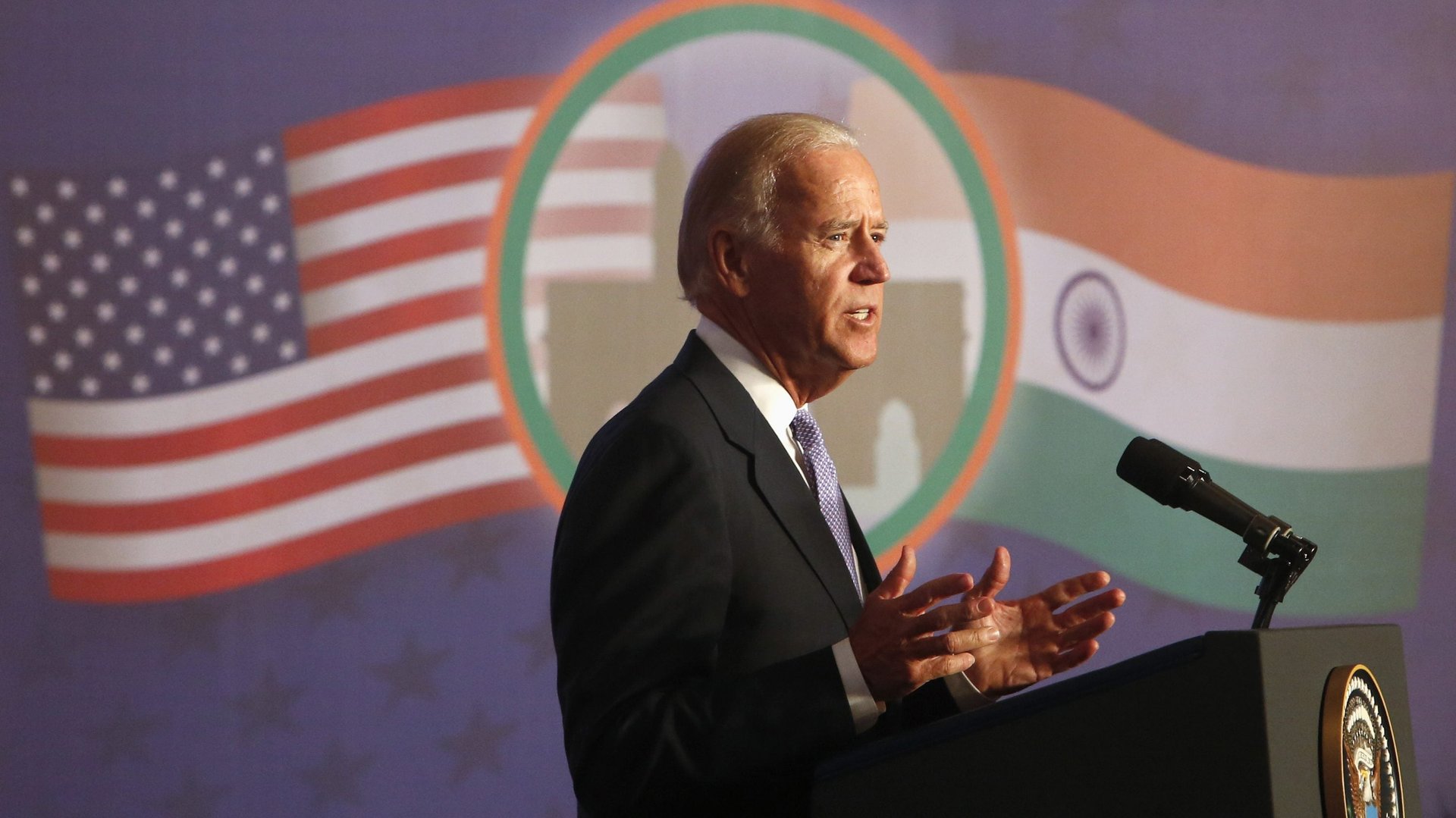Biden’s pre-election comments may not be the most reliable indicators of his policies for India
After a new American president is elected pundits in foreign countries scour through databases and film footage to find any scrap of comment the president-elect and his associates might have made about their county. Trying to guess what would likely be the policy of the new administration that is the most common fact-based speculation.


After a new American president is elected pundits in foreign countries scour through databases and film footage to find any scrap of comment the president-elect and his associates might have made about their county. Trying to guess what would likely be the policy of the new administration that is the most common fact-based speculation.
Predictably commentators are now engaged in speculation about the Biden-Harris presidency’s likely approach to India.
As one engages in that exercise it is useful to remember that pre-election comments may not be the most reliable indicators of policies to emerge. The view of the world from the Oval office looks dramatically different from the campaign hustings.
Remember Democratic candidate Bill Clinton’s denunciation of the “butchers of Beijing” in 1992. Eight years later, cheered on by US corporations, he welcomed China into the WTO promising the rise of a democratic China. Donald Trump accused China of “raping” America with its exports before welcoming Xi Jinping at Mar-al-Lago as a great friend serving “beautiful cake.” Despite the unprecedented welcome Trump received in his return visit to Beijing things did not go very well.
What should one make of Joe Biden calling Xi Jinping a “thug” during the campaign? Or for that matter Biden’s campaign statement that “In Kashmir, the Indian government should take all necessary steps to restore rights for all the people of
The Kashmir issue
It is a safe bet that neither would the Biden administration mount a foreign policy challenge to a thuggish China nor would it launch a public call to India to restore democratic rights in Kashmir. In the real world policies would be based on multiple considerations—from domestic politics to economic and security issues and evolving global security conditions—not to mention a Black Swan event.
The fact that world events don’t follow a linear path does not mean one cannot make broad guesses about the direction.
In assessing the direction of American policy towards India one can be sure of certain givens. Developments since the 2005 US-India nuclear pact when the US changed its domestic legislation to welcome India to the nuclear club and steady growth in military cooperation under both Republican and Democratic administrations have left no doubt about the two country’s alignment. The conclusion of three foundational agreements for military cooperation has raised the two countries’ strategic ties to a new level.
This means that all other vexing issues that might arise would be resolved in a manner that would not affect broader ties. The fact that US-India strategic cooperation enjoys bipartisan consensus in Washington can be expected to insulate the relations from other challenges.
Challenges, there will be. India’s removing autonomy status from Kashmir and its restrictive citizenship act essentially targeting Muslims have drawn critical attention in the US including from prominent Democratic congressional leaders. The United States Commission on International Religious Freedom recommended listing India as a country of particular concern placing the country under special focus.
In the coming months under pressure from constituents and concern of individual leaders various Congressional committees are likely to hold hearings on political developments in India. Testifying before the committees Biden officials would likely make comments that would infuriate the hyper-sensitive nationalists in India. However unwelcome critical comments may be to the Modi government it would not be able to ignore them. The relationship between the world’s oldest and most populous democracies are bound to produce some sparks.
Weapons and H-1B visa
Despite Trump’s pro-India statements and granting of special privilege in procuring US weapons India suffered a blow when its privilege of duty-free export to the US under the Generalized System of Preferences (GSP) was withdrawn. If the Biden administration reinstitutes the privileges it will be keenly watched as would the restoration of H1-B visa for Indian technology workers. Both Democratic labor unions and Trump supporters are likely to oppose giving jobs to foreigners in a post-Covid America suffering from large unemployment.
One area where relations could blossom is weapon sales. With most of the past restrictions being removed American weapon shops—especially missiles and drones—are open to India. Trump administration already notified Congress about $7.9 billion in potential foreign military sales during the 2017-2020 period. Whether India would go shopping for arms would depend on India’s needs—and ability—to pay for it. With its economy shrinking by nearly 24% in the first quarter of the 2020-2021 fiscal year India’s value as a customer has taken a blow. Contraction of H1-B visa meaning loss of remittance and fall in export earning due to loss of GSP combine to affect Indo-US economic relations and eventually its arms relationship.
Given that India does not rise to Washington’s top strategic concern and its divisive domestic politics raise some red flag for progressive Democrats, the US-India relationship promise to be more business-like than warm.
We welcome your comments at [email protected]